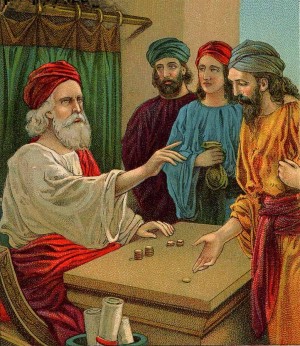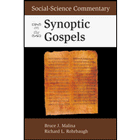In this podcast episode, we will discuss GameStop, answer a reader question about pornography and masturbation, and take a look at the Parable of the Talents in Matthew 25:14-30 to show why this parable does NOT endorse capitalism.
Someone was Right: The System is Rigged
 If you haven’t heard about what happened in the stock market this week with GameStop, AMC Theaters, Nokia, and a few other stocks, then you probably are listening to fake news.
If you haven’t heard about what happened in the stock market this week with GameStop, AMC Theaters, Nokia, and a few other stocks, then you probably are listening to fake news.
In this podcast, I briefly explain what happened, and why this reveals that those in charge do NOT have your best interest at heart, and really only care about the rich and powerful, despite what they say with their words.
As “someone” on Twitter repeatedly said over the last four years, “The System is Rigged” against us.
It might be time as ants to rise up against grasshoppers. Not violently, but with our collective voices and actions.
A Question on Pornography and Masturbation
A reader sent in this question:
I have been having problems and struggling with pornography for years, even into my marriage. I would fall into that sin for very short periods of time, stop, repent and in most cases dispose of the laptop. Then somewhere down the road I would fall again, stop, repent, and get rid of the laptop or phone. This cycle would repeat over and over again for years. Just recently I prayed to God to forgive me and forsook pornography forever. And I do not own a laptop anymore. My phone I use has blockers on it so I can’t watch pornography. That is how I am able to send you this message. Because of my sin over the years I thought I was was never saved 20 years ago. So I made a new profession of faith to God and accepted Jesus into my life as Lord and Savior. The problem I have now is I’m confused with where I stand with God. Will He forgive me for my past sins? Was I saved 20 years ago a just backslide or was I lost? Am I saved now or am I still lost? I am really confused and worried about my salvation. Can you help me with my situation I’m suffering for. Thank you so much for reading my story and God bless you. One more thing, I asked my wife to forgive me and she did.
This question would be best answered in a one-on-one private conversation, but I get it a lot, and so in the podcast, I try to give some general guidelines that apply in all situations.
 The basic truth when it comes to defeating pornography and masturbation is to remember that God always loves and forgives you, and you are always accepted and welcomed by grace. Also, God is not nearly as upset or disgusted with your behavior and you are…
The basic truth when it comes to defeating pornography and masturbation is to remember that God always loves and forgives you, and you are always accepted and welcomed by grace. Also, God is not nearly as upset or disgusted with your behavior and you are…
Here are some of the links I mention in my answer:
The Parable of the Talents in Matthew 25:14-30
In the last several years, there have been several politicians who have been elected to political office in the United States who call themselves Democratic Socialists, and they claim that this is where the United States needs to go. Many Christians and pastors have bought into this, and some are even going so far as to say that Jesus was a socialist. That the values and goals of socialism reflect the values and goals of Jesus.
This is absolute bunk. Socialism is completely contrary to the values and goals of Jesus. Those who claim Jesus was a socialist do not know the first thing about socialism or Jesus. I want to do some more teaching and writing on this in the future.
But before I do, I want to make sure you know that I also do not think Jesus was a capitalist. I have found some Christians say that Jesus was a capitalist, which is also complete bunk. Jesus was not a capitalist, and those who say so do not know the first thing about Jesus.
One of the passages in Scripture which many use to defend the idea that Jesus was a capitalist is the Parable of the Talents in Matthew 25:14-30 (or the Parable of the Minas in Luke 19:11-27). I have taught and written about this parable several times over the years (see here and here for example). In my recently recorded lesson on Judgment for the Gospel Dictionary Online course, I spent some time teaching on it again. Let me summarize for you some of what I teach in that lesson.
The timing on this is interesting as well because of what is going on in the stock market this week, as I briefly discussed earlier.
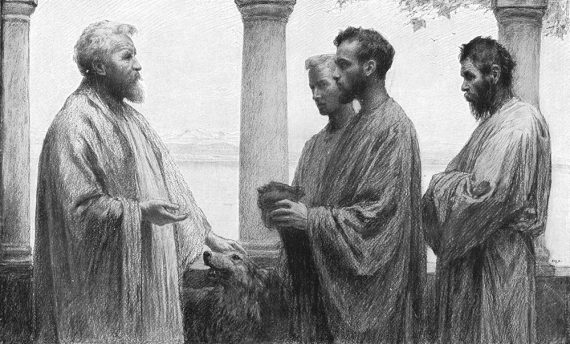
In Matthew 25:14-30, Jesus tells the Parable of the Talents. Most people believe that the Parable of the Talents is about how Jesus will reward faithful and unfaithful servants at the Judgment Seat of Christ. The typical explanation of this parable is that just as the first servant and second servant turned their talents into more and were rewarded as a result, we also should do the same with what God has given to us. But we must never be like the lazy, unprofitable third servant, who simply hid his talent in the ground. If we do, we will be punished, just like he was.
This “traditional” understanding of the text is quite popular in materialistic, greedy societies. But it is likely the opposite of what Jesus meant or what His hearers would have understood. We live in a materialistically-driven culture, which is governed by greed and the accumulation of stuff. The Bible was written in an honor culture, where stuff and money didn’t matter. In an honor-shame culture, people want honor. Money is not an end in itself, but was a means to an end. Money and wealth was a tool which allowed a person to gain more honor. Of course, if they used their money unwisely, then they could lose honor. So in an honor-shame culture, someone might be insanely rich, but if they had no honor, they were not well-liked or respected.
Furthermore, honor-shame cultures believe that wealth and possessions are in limited supply. They believe in a zero-sum economy. In other words, if one person gained wealth, it was only at the expense of someone else. The only way someone could accumulate wealth is if they took it from someone else. The rich get richer only at the expense of the poor, which, in an honor-shame culture, was an extremely shameful way to live. This is one reason why honor-shame cultures had so many “Patrons.” As the rich accumulated wealth, they saw it as their duty and responsibility to give this wealth back to society in the form of music, arts, schools, hospitals, and other such humanitarian works. This way, the wealthy gained greater honor, but not necessarily greater wealth.
This is why Zacchaeus was so despised and rejected (cf. Luke 19:1-10, which immediately precedes the Parable of the Minas in Luke 19:11-27). Zacchaeus had not engaged in any criminal behavior, and yet had become extremely rich. People believed that he had robbed his fellow countrymen. Yet Zacchaeus had done nothing but what his earthly master wanted. He had taken the talents given to him, and multiplied them. As a result, Zacchaeus was praised and rewarded by his earthly masters. But he was despised and rejected by everyone else.
However, in our materialistic, economic-driven culture, the heroes are the servants who accumulate more stuff. Zacchaeus would be a hero. He would have books and seminars about how you too can become rich like he did. But in an honor-based culture, the people who accumulate stuff are the villains. Why? Because the only way they were able to get more stuff was by taking it from someone else. In an honor-shame culture, the hero of the story is the third servant who did not become rich, but instead was content with what he was given.
So in this second parable, who is the master? It cannot Jesus. Indeed, the master is nowhere equated with the “Son of Man” as in the Parable of the Ten Virgins (Matthew 25:13) or the Parable of the Sheep and the Goats (Matthew 25:31). The master behaves in ways that are opposite to Jesus. Therefore, the master represents the god of this age, the one who models and encourages the morally reprehensible behavior of stealing from the poor to make himself rich. The master is Mammon. Followers of Jesus should not behave in such ways. If they do, while they may receive the blessings and honor of the master of this world, that is all they will receive.
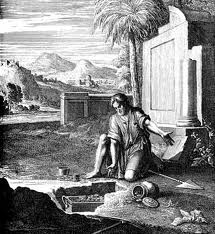
So the faithful servants of Jesus are represented by the third servant in the parable. The third servant in the Parable of the Talents was content with what he had. He didn’t even put his one talent in the bank to collect “interest” (recall the prohibitions against “usury” in Exod 22:24; Lev 25:36-37; Deut 23:19; etc.). However, the master becomes angry at the third servant and tries to shame him by taking away (“stealing”) his possessions and giving it to the one who is already rich. He also calls this third servant “wicked and lazy.” However, since the master has already proven that his own behavior is wicked and shameful, his words hold no weight. He condemns the third servant to the darkness outside the earthly party (Matthew 25:30), but the third servant knows that the rulers of this world will not have the last word. Rejection by the evil rulers of this world is worn as a badge of honor by the faithful followers of Jesus.
There are numerous other lines of evidence for this view. For example, while the preceding and following parables clearly describes the kingdom of God (cf. “kingdom of heaven” in Matt 25:1 and “Son of Man comes in His glory” in Matthew 25:31), no such terms are found in this parable. While many English translations do have the words “kingdom of heaven” in Matthew 25:14, these words were added by the translators and are not found in the Greek. Furthermore, this parable begins by saying that the master went into a “far country.” This term was also used in the Parable of the Prodigal Son to indicate someone who is walking away from fellowship with God (Luke 15:13). All of this reveals that the Parable of the Talents is set in contrast to the surrounding two.
The parallel account in Luke 19:11-27, along with its surrounding context, also reveals that this is the proper way to read the parable. Luke’s account changes the details a bit, and also refers to the Talents as Minas, but the same understanding can be applied. This is especially true when it is recognized that the story of Zacchaeus immediately precedes the Parable of the Minas (Luke 19:1-10). Zacchaeus is the perfect example of a man who became rich by robbing and stealing from the poor.
If Jesus truly is the master in the Parables of the Talents and the Minas, then Jesus should have praised Zacchaeus for his wealth. If the traditional interpretation of the Parable of the Talents (and Minas) is accepted, Jesus had no right to tell Zacchaeus to give back the money he had received by doing his job (there was nothing illegal about what Zacchaeus did). But Jesus told Zacchaeus to regain his honor by giving away his wealth.
Furthermore, the final statements of the Parable of the Talents has the master demanding that his enemies be outcast and killed. Again, this does not represented something God will do, but foreshadows what will happen to Jesus Himself and those who follow Him when they stand up to the god of this age because “they do not [him] to rule over them” (Luke 19:27). This master wants his enemies slain before him. Immediately after this, Jesus sets his face toward Jerusalem where He knows He will be killed (Luke 19:27-28). When He arrives in Jerusalem, one of the first things Jesus does is clear the temple of those who were using it to enrich themselves by stealing from the poor (Luke 19:45-48). As a result, the wicked “servants” of the temple seek to destroy Jesus (Luke 19:47).
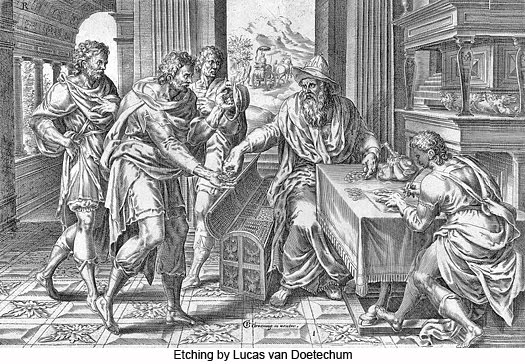
So when the Parable of the Talents is studied in its various contexts, we see that it does not describe life in the kingdom of heaven. Rather, it describes life in the opposite of the kingdom of heaven, which is the kingdom of this world. The Parable of the Talents is about what life is like for faithful and unfaithful servants in the kingdom of the world. The kingdom of the world has the opposite values and standards as the kingdom of heaven. And so while unfaithful servants will not experience the joys and blessings of the kingdom of heaven, they may do quite well for themselves with worldly joys and blessings. Meanwhile, those who choose to faithfully honor Jesus by loving and serving others will likely be shunned and rejected by the power brokers of this world.
If we are the “evil servant” in this parable, the world may praise us and we will be honored by some in this world. But if we truly live honorably (as the third servant did), the world will shame us and take away what we have and give it to those who are already rich.
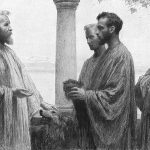



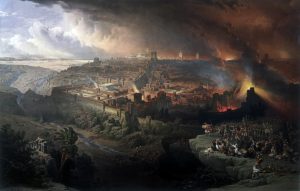 But if we take it at face value, then we see that the words of Jesus did come true within one generation. Less than forty years after Jesus spoke these words, the Roman military laid siege to Jerusalem, and eventually razed it to the ground, burned the temple, and killed over one million Jewish people.
But if we take it at face value, then we see that the words of Jesus did come true within one generation. Less than forty years after Jesus spoke these words, the Roman military laid siege to Jerusalem, and eventually razed it to the ground, burned the temple, and killed over one million Jewish people.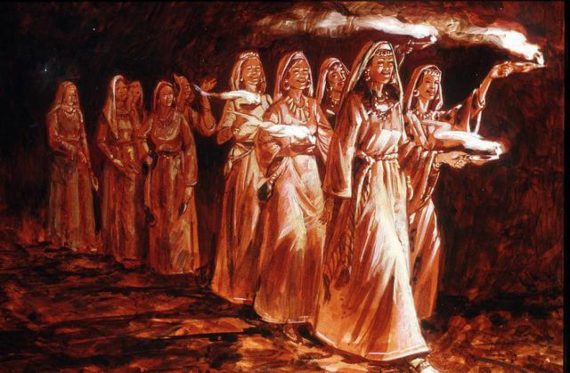

 Those who use this parable as justification to limit their care of the poor and needy to those of only one particular group of people or for people during one particular time period (e.g., the future Tribulation), self-identify themselves as a goat.
Those who use this parable as justification to limit their care of the poor and needy to those of only one particular group of people or for people during one particular time period (e.g., the future Tribulation), self-identify themselves as a goat.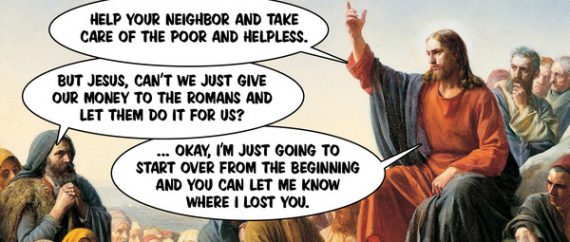


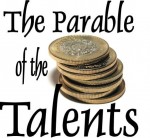
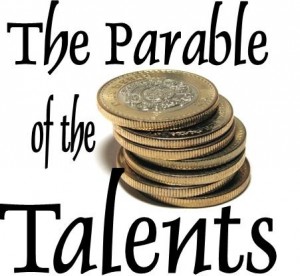 Typically the Parable of the Talents in Matthew 25:14-30 or Luke 19:11-27 is thought to teach that we must use what God has given us in ways that will multiply these gifts for God, and therefore, grant us eternal reward from Him in heaven.
Typically the Parable of the Talents in Matthew 25:14-30 or Luke 19:11-27 is thought to teach that we must use what God has given us in ways that will multiply these gifts for God, and therefore, grant us eternal reward from Him in heaven.